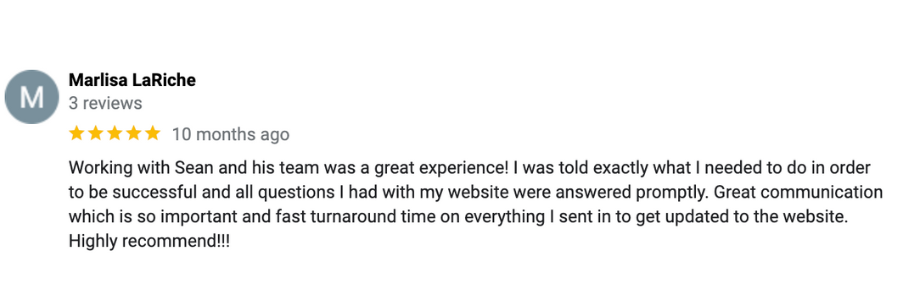222 Capitol Street, Suite 522
Charleston, WV 25301

Ideation Digital specializes in strategic marketing services that drive results for your business or organization, let us show you how our SEO Services can help grow your business on auto-pilot.
Is your online presence strong but your sales numbers remain disappointingly low?
Do you feel invisible online and know it’s affecting your sales growth?
Wondering if your business website actually brings in any customers?
Invested in online marketing but not seeing any increase in sales or customer inquiries?
The problem is there is more competition than ever for attention online and having a "good enough" online presence isn't good enough to get you customers anymore.
At Ideation Digital marketing we focus on building websites and SEO marketing programs that get you customers and leads, because why else would you invest in your small business marketing?
We understand the business saving impact of knowing you are getting consistent online leads from your website and online marketing. We are small business owners too.
That's why we only create online marketing that is optimized to produce sales and results. A.I. powered organic and comprehensive marketing systems that leverage the power of A.I. to create an online presence that actually makes the phone ring.

Want to discover how much not having an A.I. powered organic marketing system is costing your business already?
Get our digital marketing cheat sheet, made from a decade of experience in the industry, and customized for your business with exact steps to get consistent leads from your online marketing and finally feel like your online marketing investment is worth it!
How It Works
Here's what you get working with us:
Trust
We only recommend products and services that align opportunities with your goals. We focus on results for your business first.
Freedom
We manage all campaigns and assets for you. Need an update? No problem, send us an email, a text, or we will even create you a slack channel.
Growth
We don't just build websites, create SEO plans, and run ads for online marketing campaigns, we create comprehensive a.i. powered organic and paid marketing programs that bring you leads and customers.
See What Small Business Owners are Saying About Working with Ideation Digital








How to Achieve SEO Success with Keyword Optimization

SEO, or Search Engine Optimization, is the linchpin for online success in an increasingly digital world. Amid the vast landscape of SEO strategies, one aspect reigns supreme – keyword optimization. The right keywords can catapult your content to the forefront of search engine results, driving organic traffic and boosting visibility. This comprehensive guide delves into the intricacies of achieving SEO success through meticulous keyword optimization. Join us as we unlock the secrets to selecting, implementing, and evolving your keyword strategies for maximum impact in the dynamic realm of online search.
Definition of Keyword Optimization
Keyword optimization is a pivotal facet of Search Engine Optimization (SEO). It encompasses the strategic selection and seamless integration of relevant keywords within digital content to enhance its visibility in search engine results. This process involves thorough research to identify high-impact keywords and strategic placement in various web page title tags, meta descriptions, body content, and examples of components. By aligning content with user search queries, keyword optimization improves search engine rankings and ensures content resonates with the intended audience, driving organic traffic and fostering online success.
The Role of Keywords In Search Engine Algorithms
Keywords play a crucial role in search engine algorithms, functioning as signaling components that assist search engines in comprehending the content and relevancy of web pages. When users enter queries into search engines, algorithms analyze the keywords to determine the most relevant and authoritative pages for displaying in the search results. The frequency, placement, and context of keywords within a webpage influence its ranking. Search engines aim to provide users with the most relevant and valuable content, making keyword optimization a fundamental factor in ensuring a webpage's visibility and ranking in search engine results.
Conducting Keyword Research
Conducting effective keyword research is a cornerstone of successful SEO strategies. It systematically explores terms and phrases that potential users might use when searching for content online. Here's a breakdown of the critical steps in conducting comprehensive keyword research:
Understand Your Business and Audience: Before diving into tools, start by deeply understanding your business and target audience. Identify core themes, products, or services that define your brand and resonate with your audience. This foundational knowledge will guide your keyword research strategy.
Utilize Keyword Research Tools: .Leverage powerful tools like Google Keyword Planner, SEMrush, and Ahrefs to identify relevant keywords. These tools provide insights into search volume, competition, and related keywords. Explore both short-tail and long-tail keywords to capture a diverse range of user queries.
Analyze Competitors' Keywords: Gain a competitive edge by analyzing the keywords that successful competitors target. Identify common themes and gaps in their strategies. This helps refine your keyword list and provides insights into industry trends and user preferences.
Long-Tail Keyword Exploration: Don't overlook the power of long-tail keywords – specific, niche phrases that may have lower search volume but often indicate high user intent. These keywords can attract a more targeted audience and are valuable for capturing users at various stages of the buyer's journey.
Consider User Intent: Think beyond just words; consider the intent behind user queries. Are they seeking information, looking to make a purchase, or comparing options? Align keywords with different customer journey stages to create content that addresses user needs effectively. Understanding user intent enhances the relevance of your content in search results.
On-Page Keyword Optimization
On-page keyword optimization is a fundamental aspect of SEO, ensuring your website's pages are finely tuned to rank well in search engine results. This process involves strategically placing and integrating selected keywords within various on-page elements. Here's a breakdown of the critical components of on-page keyword optimization:
Title Tags: Craft compelling and keyword-rich title tags for each page. These tags provide a concise content preview, and search engine algorithms rely heavily on them. Include the primary keyword near the beginning of the title to enhance relevance.
Meta Descriptions: Write concise and engaging meta descriptions that incorporate relevant keywords. While meta descriptions don't directly impact rankings, they influence click-through rates by giving users a snapshot of what to expect on the page.
Header Tags (H1, H2, etc.): Organize content using header tags and include keywords naturally. The H1 tag is significant, signaling the page's main topic to search engines. Subsequent header tags (H2, H3, etc.) can be used to structure content hierarchically.
Body Content: Integrate keywords seamlessly into the body while retaining a natural, reader-friendly flow. Avoid keyword stuffing and provide valuable, informative content that aligns with user intent. Google's algorithms prioritize content that genuinely addresses user needs.
Image Alt Text: Optimize images by adding descriptive and keyword-rich alt text. Search engines rely on alt text to understand the content of images, enhancing the overall relevance of the page. This is particularly crucial for accessibility and image searches.
Technical SEO and Keyword Optimization
Technical SEO and keyword optimization go hand in hand to ensure that a website performs well in search engine results and delivers a consistent user experience. Here's a breakdown of the critical elements in combining technical SEO with effective keyword optimization:
- URL Structures: Ensure your URL structures are concise and descriptive and include relevant keywords. Search engines use URLs to understand the content and context of a page. A clear and keyword-rich URL can contribute to improved rankings.
- Optimizing Alt Attributes: Incorporate keywords into image alt attributes. Alt text not only enhances accessibility for users with visual impairments but also provides search engines with valuable information about the images on your page, contributing to overall keyword relevance.
- Mobile Optimization: With the increasing use of mobile devices, prioritize mobile optimization for your website. Google considers mobile-friendliness as a ranking factor. Ensure that your site is responsive, providing a smooth user experience across various devices and effectively integrating keywords into mobile content.


- Page Speed Optimization: Fast-loading pages contribute to a positive user experience and are favored by search engines. Optimize your website's page speed by compressing images, leveraging browser caching, and minimizing unnecessary code. A faster website can lead to better rankings, enhancing the impact of keyword optimization efforts.
- Schema Markup: Implement schema markup to provide search engines with additional context about your content. This can enhance the visibility of rich snippets in search results, making your content more attractive and informative to users. Use schema markup to highlight critical information and incorporate relevant keywords.
Crafting superior content is pivotal in maximizing keyword optimization efforts. High-quality content seamlessly weaves chosen keywords, engaging readers while aligning with search engine algorithms. Understanding user intent is vital—delivering valuable information that meets audience needs ensures sustained success.
Avoiding keyword stuffing and focusing on the natural integration of keywords fosters a reader-friendly experience. In essence, marrying compelling content with strategic keyword use elevates search engine rankings and establishes your digital presence as authoritative and user-centric, driving organic traffic and fostering online success.
Creating High-Quality Content for Keyword Optimization
Monitoring and Adjusting Keyword Strategies
Continuous monitoring and adjustment of keyword strategies are essential in the ever-evolving landscape of SEO. Regularly track keyword performance, analyze user behavior, and adapt strategies based on data-driven insights. Stay vigilant to changes in search engine algorithms, competition, and industry trends.
You can refine your keyword approach to align with shifting user intent and emerging opportunities by maintaining flexibility and responsiveness. Ongoing optimization ensures that your content remains relevant, ranks well in search engine results, and continues to drive organic traffic to your site.
Link Building and Keyword Optimization
Link building and keyword optimization are integral to a successful SEO strategy. Link building involves acquiring high-quality backlinks from reputable websites, signaling to search engines the authority and relevance of your content. Strategically incorporating keywords into anchor texts further enhances the association between your content and target keywords.
This symbiotic relationship between link building and keyword optimization improves search engine rankings and drives organic traffic. A well-executed link-building strategy amplifies the visibility of keyword-optimized content, fostering a robust online presence and establishing credibility within your industry.
Local SEO and Keyword Optimization
Local SEO and keyword optimization converge to amplify the internet visibility of businesses in specific geographical locations. Local SEO tactics, such as creating a Google My Business profile, align with targeted keyword strategies to enhance local search rankings.
Optimizing content with location-specific keywords and ensuring consistent NAP (Name, Address, Phone Number) information across online platforms further strengthens local SEO efforts. This synergy ensures that businesses are easily discoverable by local audiences searching for products or services, ultimately driving foot traffic and establishing a solid digital presence within their communities.
Evolving Trends in Keyword Optimization
Evolving trends in keyword optimization reflect search engine algorithms and user behavior are dynamic. Voice search continues to rise, emphasizing the need for conversational and long-tail keywords. Artificial intelligence (AI) is growing, with search engines becoming more adept at understanding context and user intent.
Staying updated on algorithm changes and industry trends is crucial. The shift toward semantic search underscores the importance of content depth and relevance. Adapting to these trends ensures that keyword optimization strategies remain effective, providing a competitive edge in the ever-evolving online search landscape.
In conclusion, mastering keyword optimization is pivotal for securing SEO success in the digital realm. Businesses can enhance their online visibility and attract a targeted audience by understanding user intent, conducting thorough research, and seamlessly integrating keywords into content. As the digital landscape evolves, staying abreast of emerging trends, adapting strategies, and consistently monitoring performance is essential.
For personalized guidance in navigating the intricacies of keyword optimization and boosting your online presence, connect with Ideation Digital. Elevate your SEO game – contact us at clients@ideation-digital.com or call (304) 814-2445 to embark on a journey towards digital prominence.

Main Office
222 Capitol Street, Suite 522
Charleston, WV 25301
other offices
48 1/2 Second Ave, Williamson, WV 25661
20 Clinch Mountain Ave, Lebanon, VA 24266,
Contact
DIGITAL MARKETING SERVICES
All Rights Reserved | Ideation Digital
Private Policy
All Rights Reserved | Ideation Digital



